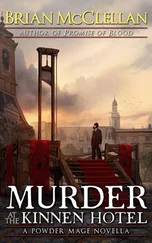Walter stopped into the usual grocery store on his way home that evening, and the thought of stopping into this store again tomorrow, and then the day after that, and then the day after that, slow strolls down the frozen-food aisle interspersed with shifts at the hotel where he’d been working for the past decade, a day older every time, the city closing in around him, well, it was unbearable, actually. He placed a package of frozen corn in his basket. What if this was the last time he ever performed this action, here in this particular store? It was an appealing thought.
He’d been with the ballet dancer for twelve years. He hadn’t seen the breakup coming. He’d agreed with his friends that he shouldn’t make any sudden moves. But what he wanted in those days was to disappear, and by the time he reached the checkout counter he realized that he’d made his decision. He accepted the position; arrangements were made; on the appointed day a month later he flew to Vancouver and then caught a connecting flight to Nanaimo on a twenty-four-seat prop plane that barely reached the clouds before descending, spent the night in a hotel, and set off the next day for the Hotel Caiette. He could have saved considerable time by flying into one of the tiny airports further north, but he wanted to see more of Vancouver Island.
It was a cold day in November, clouds low overhead. He drove north in a gray rental car through a series of gray towns with a gray sea intermittently visible on his right, a landscape of dark trees and McDonald’s drive-throughs and big-box stores under a leaden sky. He arrived at last in the town of Port Hardy, streets dim in the rain, where he got lost for a while before he found the place to return the rental car. He called the town’s only taxi service and waited a half hour until an old man arrived in a beat-up station wagon that reeked of cigarette smoke.
“You’re headed to the hotel?” the driver asked when Walter requested a ride to Grace Harbour.
“I am,” Walter said, but found that he didn’t particularly feel like making conversation after all of these hours of traveling in solitude. They drove in silence through the forest until they reached the village of Grace Harbour, such as it was: a few houses here and there along the road and shoreline, fishing boats in the harbor, a general store by the docks, a parking lot with a few old cars. He saw a woman through the window of the general store, but there was no one else around.
Walter’s instructions were to call the hotel for a boat. His cell phone didn’t work up here, as promised, but there was a phone booth by the pier. The hotel promised to send someone within the half hour. Walter hung up and stepped out into cool air. It was getting on toward evening and the world was shifting to monochrome, the water pale and glassy under a darkening sky, shadows accumulating in the forest. He walked out to the end of the pier, luxuriating in the silence. This place was the opposite of Toronto, and wasn’t that what he’d wanted? The opposite of his previous life? Somewhere back in the eastern city, the ballet dancer and the lawyer were at a restaurant, or walking the streets holding hands, or in bed. Don’t think of it. Don’t think of it. Walter waited, listening, and for a while there was only the soft lapping of water against the pier and the occasional cry of a seagull, until in the distance he heard the vibration of an outboard motor. A few minutes later he saw the boat, a white fleck between the dark banks of forest, a toy that grew steadily until it was pulling up alongside the pier, the motor obscenely loud in all that quiet, wake splashing against pylons. The woman at the stern looked to be in her mid-twenties and wore a crisp, vaguely nautical uniform.
“You must be Walter.” She disembarked in a single fluid motion and lashed the boat to the dock. “I’m Melissa from the hotel. May I help with your bags?”
“Thank you,” he said. There was something startling about her, an air of apparition. He was almost happy, he realized, as the boat pulled away from the pier. There was a cold wind on his face, and he knew this was a voyage of no more than fifteen minutes, but he had an absurd sense of embarking on an adventure. They were moving so rapidly, darkness falling. He wanted to ask Melissa about the hotel, how long she’d been here, but the motor was prohibitively loud. When he glanced over his shoulder, the wake was a silver trail leading back to the scattered lights of Grace Harbour.
Melissa piloted them around the peninsula and the hotel was before them, an improbable palace lit up against the darkness of the forest, and for the first time Walter understood what Raphael had meant when he’d talked about an element of surrealism. The building would have been beautiful anywhere, but placed here, it was incongruous, and its incongruity played a part in the enchantment. The lobby was exposed like an aquarium behind a wall of glass, all cedar pillars and slate floors. A double row of lights illuminated the path to the pier, where a doorman—Larry—met them with a trolley. Walter shook Larry’s hand and followed his luggage up the path to the hotel’s grand entrance, to the reception desk, where Raphael stood waiting with a concierge smile. After introductions, dinner, and paperwork, Walter eventually found himself in a suite on the top floor of the staff lodge, whose windows and terrace looked out into trees. He closed the curtains against the darkness and thought about what Raphael had said, about the hotel’s existing outside of time and space. There’s such happiness in a successful escape.
By the end of his first year in Caiette, Walter realized that he was happier here than he’d ever been anywhere, but in the hours following the graffiti, the forest outside seemed newly dark, the shadows dense and freighted with menace. Who stepped out of the forest to write the message on the window? The message was written backward on the glass, Walter wrote on the incident report, which suggests it was meant to be viewed from the lobby.
—
“I appreciate the clarity of the report,” Raphael said when Walter came to his office the following afternoon. Raphael had lived twenty years in English Canada but retained a strong Quebec City accent. “Some of your colleagues, I ask for a report and they hand in a dog’s breakfast of typos and wild speculations.”
“Thank you.” Walter valued this job more than he’d ever valued anything and was always vastly relieved when Raphael praised his performance. “The graffiti’s unsettling, isn’t it?”
“I agree. Just this side of threat.”
“Is there anything on the surveillance footage?”
“Nothing very useful. I can show you if you’d like.” Raphael swiveled the monitor toward Walter and pressed play on a black-and-white video clip. Security footage of the front terrace at night, cast in the spooky luminescence of the camera’s night-vision mode: A figure appears from the shadows at the edge of the terrace, wearing dark pants and an oversized sweatshirt with a hood. His head is down—or is it a woman? Impossible to tell—and there’s something in the gloved hand: the acid marker that defaces the glass. The ghost steps gracefully up onto a bench, scrawls the message, and melts back into the shadows, never looking up, the entire vision transpiring in less than ten seconds.
“It’s like he practiced it,” Walter said.
“What do you mean?”
“Just, he writes it so quickly. And he’s writing backward. Or she. I can’t tell.”
Raphael nodded. “Is there anything else you can tell me about last night,” he said, “that might not have appeared in the report?”
“What do you mean?”
“Anything at all out of the ordinary in the lobby. Any strange details. Something you maybe thought not relevant.”
Читать дальше












